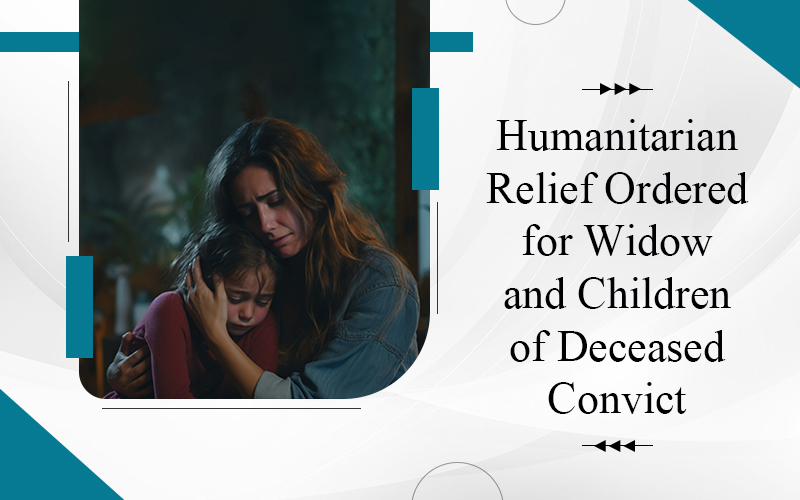Jameela & Ors. v. State of Madhya Pradesh
Criminal Appeal Nos. 3641–3642 of 2025
(DIPANKAR DATTA and AUGUSTINE GEORGE MASIH, JJ)
The Supreme Court heard a complicated appeal in the case of the late Sheikh Akhtar, who was a government official and had been found guilty in 2007 under Sections 305 and 506-B of the Indian Penal Code (IPC). Akhtar, who was a Naib Nazir in a court of a local bench, was held guilty of abetment of suicide of a minor under Section 305 IPC and sentenced to ten years’ rigorous imprisonment and two years’ imprisonment under Section 506-B IPC for criminal intimidation. On his conviction, he was removed from service. Akhtar had challenged the conviction in the Madhya Pradesh High Court in 2007, but he died during the period of appeal in April 2015. His widow Jameela and their children carried on pursuing the appeal in the expectation that they would get him acquitted, which would allow them to claim his terminal service benefits as he had given over three decades of service.
The High Court, by order dated 25th April 2024, partly granted the appeal. It set aside the conviction of Akhtar under Section 305 IPC but proceeded to hold him guilty under Section 195-A IPC for threatening a witness, a section added to the Penal Code in 2006, years later, and under Section 506-B IPC. The Sessions Court sentence stood. A later application for modification was rejected on 2nd August 2024. Being aggrieved, Jameela and her children went to the Supreme Court, which gave them leave to appeal.
The case originated from a tragedy that occurred in 1999. The prosecution stated that the victim, a child girl, had been molested by one Munna. Akhtar, Munna, Bhadde, and Mamu Gudda threatened the victim and her family with serious harm if she testified against Munna. The victim was threatened by the accused on 19 February 1999 on her way to court. She then went home after court hearings had been adjourned, and she burned herself alive, only to die a few days later due to the injuries. Her dying statement was taken by a Deputy Tehsildar, but the written statement was not present. The testimony of witnesses from her mother (PW-4) and older sister (PW-3) confirmed that Akhtar along with others had threatened her, and the victim took her life in order to save her father.
In the Supreme Court, the appellants contended that the prosecution evidence was contradictory. They referred to inconsistencies in witness testimony regarding how many times threats had been issued on the day of the occurrence and noted that certain witnesses (PWs 5, 6, and 7) had not even mentioned Akhtar. Most importantly, they argued that the High Court was wrong in sentencing Akhtar under Section 195-A IPC, which did not exist at the time of the incident, thus violating Article 20(1) of the Constitution prohibiting retrospective criminal liability. They also relied on defence evidence, such as court staff depositions (DWs 3 and 4) and rolls of attendance, which indicated Akhtar was in court the whole day and could not have attended the location of threats. The State, nevertheless, concentrated on defending the conviction on Section 506-B IPC, admitting the High Court’s consideration of Section 195-A IPC was in error.
The Supreme Court evaluated these submissions with caution. On the so-called inconsistencies, it believed that minor discrepancies, like PW-4 failing to indicate the second act of threat in the FIR, were not decisive. FIRs are not required to include all details, particularly when filed under conditions of emotional distress. The Court did find the statements of PWs 2, 3, and 4 believable and consistent, proving that Akhtar was one of those threatening the victim. The failure to mention his name by other witnesses was not enough to discredit the case. On the more serious question, the Court categorically held that the High Court had erred in convicting Akhtar under Section 195-A IPC. As that provision was enacted only in 2006, several years after the incident of 1999, its application in the present case retrospectively was contrary to Article 20(1). The conviction under Section 195-A IPC was accordingly set aside.
Coming to Section 506-B IPC, the Court observed that although the High Court had not separately considered this offense, the Sessions Court had convicted Akhtar under this upon firm evidence. Reviewing the record once again, the Supreme Court held that there was clear evidence of Akhtar’s involvement in threatening the victim. His conviction under Section 506-B was accordingly maintained. Regarding DWs 3 and 4’s defence evidence, the Court held that the Sessions Court has already dealt with and dismissed it on proper grounds, and as no objections were raised against this in the appeal to the High Court, there was no need to interfere.
Part of the appeal was allowed by the Supreme Court. It withheld Akhtar’s conviction under Section 195-A IPC but confirmed his conviction under Section 506-B IPC. The acquittal under Section 305 IPC, already provided by the High Court, became final. But as Akhtar had passed away, the Court resolved the humanitarian question raised by his widow and children. It urged the State to adopt a humanitarian approach, considering Jameela’s financial condition and liabilities, and to decide the matter preferably within three months.




